- Home
- George R. R. Martin
Busted Flush wc-19 Page 13
Busted Flush wc-19 Read online
Page 13
These people knew the game. Prices must be paid. And as for innocence—“It’s bloody Africa,” he said aloud, shaking his head. He inhaled deeply from his cigar.
The blade fell once, twice. It chopped the boy’s arms off just below the shoulder. If the boy made any noise it was lost amid the villagers’ screams. His blood spurted bright red in the morning sun.
From the corner of his eye Chauncey saw something in the sky. He looked around right quick. A man was flying low over the village. It was the blond-haired pretty-boy ace from down south in the People’s Paradise.
Quickly Captain Chauncey stepped back out of view under the overhang of a roof meticulously hammered out of scavenged soup cans. Once when the sergeant didn’t think his CO was listening, McAskill had dared to call him a “podgy, pasty-faced git.”
The captain smiled again. Now he’d learn what happened to those who said shite like that about Butcher Dagon.
The flying man stretched out his hand. A line of bright fire leapt from his palm. It hit McAskill in the back.
With a scream that was mostly superheated air expelled from already-dead lungs McAskill flung his arms out straight as flame enveloped him. His FN-LAR rifle went flying.
Gunfire began to flash and thunder from the surrounding weeds, raking the Nigerians. The Butcher flicked his butt to the ground.
“Sod you, McAskill,” he said, and took himself off.
Crouched among weeds the twenty-one-year-old woman felt fear spread like sickness from her belly. Though it was probably no hotter nor more humid here near the Bight of Bonny than in her home city on the Congo River, now part of the People’s Paradise capital of Kongoville, the sweat streamed down her face and from her armpits inside the camouflage blouse she wore.
Her desire to rush forward and save the child from the blade had burned like fire. But the hard men around her in their Ray-Ban sunglasses and distinctive spotted camouflage, elite Leopard Men commandos, would shoot her if she gave away the trap about to be sprung. As surely as their comrades, fanning out to surround the village on three sides, were about to cut down the Nigerians and their SAS advisors.
Her breath caught in her throat as the golden-haired hero of the PPA, of whom her people said his skin was white but his soul a black man’s, touched lightly down by the man he had incinerated and swatted away the soldiers who had mutilated the boy. As the Leopard Men opened fire she unfolded long slim legs and stumbled forward.
Her escort let her go. They were intent on shooting at the now-fleeing remnants of the Nigerian patrol. Stealth was no longer a concern.
As if drawn by an invisible tether she approached the boy flopping and bleeding his young life away into the white sand. The risk of accidental shooting meant nothing. Her whole being had narrowed to needle focus on her duty: to succor the hurt. As only she could.
She walked as though she sank to her knees in the soft sand at every step. Because she walked also into her own private world of pain.
“This is gold!” Sun Hei-lian’s cameraman exclaimed. “Holy shit, this is great.”
Annoyance stabbed Hei-lian as behind her a new crew member turned to lose his lunch in the weeds among the palm trees a hundred meters from the village. She had spent much of the last two decades working third world crises, seen a hundred people’s share of horrors. Yet her own pulse ran almost stumbling fast and her skin prickled with adrenaline from what she’d just witnessed.
It was so horrible she had actually felt an urge to intervene. But their Leopard Society guards had made abundantly clear that while her CCTV news team represented the People’s Republic of China, whose fraternal assistance to the PPA they greatly appreciated, if they got out of line, they’d be killed without hesitation.
If I can take it, she thought, the newbie can, too.
Her longtime sidekick and cameraman, Chen, a chunky crew-cut gargoyle kneeling at her side, seemed focused as tightly as his camera. Hei-lian had to agree that what they’d just captured, the boy’s mutilation followed by the ace formerly known as the Radical leading a surprise assault on his tormentors, was electric. A victory for her team as complete as the one the commandos were even now mopping up.
A young native woman, willowy-tall and fresh-faced as a child, emerged from tall grass to Hei-lian’s left. Hei-lian’s instincts started barking like excited guard dogs. “Chen,” she said urgently. “Track left.”
A brief scowl creased his big round face behind his viewfinder. She actually thought that in their years of working together as a team he’d learned to overlook the fact that she was a mere woman—as well as the indignity of having to take orders from her. He swung the camera left.
“What’s with this chick?” he asked. They spoke English in the field, for practice. “She’s moving like a zombie from Dawn of the Dead.”
“Get that sat dish set up now,” Hei-lian shouted. The use of Mandarin instead of English made the young tech wiping puke from his mouth with the back of his hand jump like a jolt from a cattle prod. He and his assistant didn’t fumble as they unfolded the small metal flower of the portable uplink. They didn’t dare. “Get us a signal.”
“Why bother?” Chen said. “The healer ace. Oh, boy. What? She’s going to conjure bandages out of thin air? Bo-ring.”
“Just keep shooting,” Hei-lian said.
“All right, I know. Human interest. Yada-yada-yada.”
But Hei-lian knew something more was happening. She wasn’t really a telejournalist. Or rather, she was that among other things. And she was getting the intuition in stereo.
The African girl’s smooth face showed keen suffering now, as if she felt not just sympathy but the brutalized child’s actual pain. An empath-ace? wondered that specialized part of Hei-lian’s mind. The Ministry of State Security, the Guojia Anquan Bu, Guoanbu for short, had no information on the girl: she was new. Their would-be allies, the PPA, were holding out on them. Again.
“Hong,” she said.
“Got it!” the tender-tummied tech sang out. “You’re live, Sun.”
She straightened and shifted so that Chen could frame her briefly with the young woman in the background. “This is Sun Hei-lian, CCTV, reporting live from an Ijaw village in the disputed oil lands of the Niger River Delta, where Leopard Men commandos from the People’s Paradise of Africa, led by the ace they call Mokèlé-mbèmbé after the legendary hippopotamus-slaying river dragon, have just stopped a Nigerian platoon advised by British SAS troopers from carrying out a massacre. Now PPA ace Dolores Michel is about to heal a youthful atrocity victim.”
Hei-lian moved to clear the frame. Obediently Chen focused on Dolores. She had slowed even further, as if the air had congealed around her. Tears streamed down her cheeks. Tendons stood out on her throat. Hei-lian could see her shaking from here.
Ten feet from the boy she stopped. Her body spasmed violently. She threw back her head and screamed.
In great gushes of blood her arms blew off her body at exactly the same points at which the boy’s had been severed.
Sun Hei-lian and crew emerged first from the Gulfstream that had brought them from a strip in the recently incorporated PPA province of Cameroon, into the hot green twilight of Kongoville’s Patrice Lumumba International Airport. They set up on the apron next to the mobile ramp to shoot.
Medical technicians carried Dolores Michel down on her gurney, moaning in agony unallayed by painkillers. Briefed by a propaganda officer during the return from the Delta, Hei-lian now knew they interfered with her ace.
Tom Weathers stepped into the sunset light slanting across the Congo River. The crowd held back by Simba Brigade soldiers roared adoration.
A striking woman, tall and slim with blond hair flying, ran from the knot of waiting dignitaries through heat that rose from the pavement like shock waves. She caught Weathers in a passionate embrace. For all her self-control Hei-lian couldn’t prevent a mouth-twist of distaste.
The woman detached herself from Weathers. To Hei-lian’s keen discomfort s
he ran up and hugged her. She was taller than the Chinese woman, who was middling tall even by Western standards.
“Hei-lian,” she said.
She had the voice of an adult woman, the inflection of a child. Sprout was not Weathers’s lover, but his daughter—protected fiercely throughout his mercurial career as the last international revolutionary. She had the mind and emotional development of a seven-year-old.
Disgusting, that he indulges the creature so, Hei-lian thought as Sprout released her. She fought the urge to dab at herself, as if to wipe away some unseen contagion.
There was mystery, too, that caught at Hei-lian’s mind like a cat claw snagged in the skin of her arm: though her face was unlined and lovely, Sprout, close-up, looked to be on the cusp of middle age. Perhaps not much younger than Hei-lian’s forty-one years. She actually looked older than her father did.
Yet, Guoanbu knew, the Radical had aged normally since bursting on the world like a car bomb over a decade before.
Chen had panned around to catch President-for-Life Dr. Kitengi Nshombo and his sister Alicia, flanked by Leopard Society men in dark suits, leopard-skin fezzes, and their inevitable aviator shades, advancing to welcome the homecoming heroes. The president was a head shorter than his sister, handsome in an austere way. In his heavy-framed glasses he looked a little bit like Malcolm X, but scaled down, concentrated, with skin almost as dark and hard-looking as obsidian.
Dr. Nshombo gave a short speech in French, the official language of the People’s Paradise. Though she understood it perfectly Hei-lian tuned it out: boilerplate.
Alicia enfolded Tom to her vast bosom. “Mokèlé-mbèmbé, you have struck a mighty blow for revolutionary justice everywhere!”
Chen caught Hei-lian’s eyes and rolled his.
“There is good news, Tom, my friend,” the president said as they walked toward limousines waiting to carry them to the palace. He said “my friend” as if barely familiar with the words. They were probably almost true. No one quite knew how the Africa-for-Africans ideologue with the charisma of a plank of wood and the white-skinned global guerrilla idol had formed their partnership. But there was no question it had proven highly profitable for both.
And soon it will profit China, Hei-lian thought. She felt . . . as close to happy as she ever did.
“What’s that?” Tom asked. He spoke French with an outlandish American accent that Hei-lian suspected was part of his act. He walked hand in hand with his daughter, who took all the fuss surrounding her daddy in stride. She was used to it.
At least she’s a well-behaved thing, Hei-lian thought.
“A delegation of UN aces are on their way from New York, Tom, cher,” said Alicia, beaming from behind her glasses as if announcing the advent of Santa Claus. She acted as her brother’s right hand. She was also head of the Leopard Society, which among other things constituted the secret police. “They’re going to investigate whether to intervene—to help us free the oppressed people of the Delta from Nigerian and British imperialism.”
“The Committee dudes?” Tom flashed that grin of his.
“Indeed,” the president said. “Your video from the Delta has stirred outrage worldwide. The UN at last heeds the calls for action.”
He flicked a look at Hei-lian. As usual his face was expressionless. A warm flush ran from her stomach to her cheeks. Our video, she thought. That in itself was a victory for the PRC.
The president’s Mercedes limousine waited with top defiantly open, in contrast to the bulletproof carapaces beneath which most world leaders cowered to “meet” their subjects. “Wait one,” said Weathers.
If the delay annoyed Nshombo he gave no sign. He seldom did. If you managed to annoy him, you found out about it from Alicia.
A medical crew was about to load Dolores Michel into a nearby ambulance. Weathers walked up to her in that long-legged swagger of his. Hei-lian gestured her crew along and followed.
The girl was conscious. Even Hei-lian winced at that. Her face was ashen green and streamed with sweat. But her eyes were clear.
The Angel of Mercy. That was what the Information Ministry man told the CCTV team to call Dolores.
Bloodless lips moved. She seemed to be praying repetitively. Hei-lian recognized it. Her father had been a priest, albeit of a different confession.
“You really gonna heal up, there, girl?” Weathers asked. Dolores’s eyes met his. She actually tried to smile. She managed a nod.
“You did a great thing back there in the Delta,” he said. Bending down he kissed her forehead. “When you get up you’ll be a heroine to the whole friggin’ world.”
“Tell me a little about yourself, Dolores,” the Chinese woman said.
Dolores sat in a wheelchair in the vast rose garden on the presidential palace grounds. It was the day after their return from Nigeria. Because of the need for strong light to shoot by they couldn’t be in shade. The high hedges were gloriously colored, but they also cut off any breezes that might have relieved the oven heat. And the concentrated fragrance made her woozy.
Despite all that, Dolores felt much better. She only wished she weren’t so afraid of the reporter. Though totally old, maybe even over forty, she was quite lovely in an alien, austere way. Certainly she moved with the grace of a jungle cat.
The gaggle of Chinese men filming and recording her didn’t help put her at ease. But she had been ordered to do this for the People’s Paradise.
“I was born here,” she said. “In 1988. The city was Kinshasa then. My father was a clerk with the Ministry of Transportation. My mother was a schoolteacher. We were good Catholics. Our life was good despite political upheavals and outbreaks of violence; they were worse in the countryside.”
She smiled. “We welcomed it when Dr. Nshombo and his . . . war leader took power, united the Democratic Republic with our neighbors the Republic of the Congo, and combined Kinshasa with Brazzaville into Kongoville. It brought peace and stability at last.”
The journalist smiled and nodded. Dolores was a child of a mass-media generation; her family had satellite TV. She understood the smile was purely professional. Yet she couldn’t help responding to it.
“You did something remarkable yesterday, taking that poor child’s injuries on yourself. They tell me both you and he will heal with astonishing rapidity—that you’ll actually regenerate the severed limbs. Is that true?”
“Yes. Already my arms grow back. They—they itch terribly. I wish I could scratch.”
She laughed. She did not mention how badly she still hurt. Laughter gave blessed if temporary relief.
“You’re an ace.”
“Yes.”
“When did you turn your ace?”
“I was a student nurse at Liberation University. I was given . . . a test.”
Dolores bit her lip. The Ministry of Information woman had coached her carefully. She hoped she’d get her lines right. Mistakes cost. It was part of the price of order.
“So it revealed your ace.”
“Yes.”
No. But the true nature of the facility she had been taken to, far out in the bush, was a state secret. And if she mentioned the experimental injection she and the others received there . . . even her sudden heroine status wouldn’t save her.
“Once they found out I had an active wild card I was taken to a special school for wild cards. They gave me more tests.”
And I failed them. The memory still brought on a cold sweat. Those who manifested no useful ace powers met the same fate as jokers and deuces. And the black queens, for that matter. They were taken away. What happened then no one knew.
If they guessed, no one dared whisper. Those who spoke too candidly also disappeared.
“There was an accident on the training ground,” she said. “A young man, Pierre, was terribly burned by a new ace who didn’t know how to control his power. They brought him in as I was being taken out.”
To meet my own fate. The State had lost patience with her. She knew the survival of
the People’s Paradise in the face of imperialist hate and envy required harsh measures. But she feared death.
Almost as much as she feared pain.
“As he was rushed past on a gurney, I—I felt as if I had caught fire. I fell down screaming. My flesh blistered. Actually charred.”
“How terrible.”
“The pain was—unbelievable.” She blinked away tears of remembrance. It was never easy; but that was still the worst. “My injuries exactly mirrored Pierre’s. And we both healed totally within a few days.”
The reporter shook her head. “So you actually experience it all? The wounds, the pain?”
“Oh, yes.”
“You are an exceptional young woman.”
“I’m just a normal girl. I don’t mean to be a heroine.”
“But to walk up to that poor Ijaw boy, knowing what would happen to you—where did you find the courage?”
“It’s my gift.” My cross. “Because I can do this, I feel I—can’t not.”
The reporter nodded. Clearly she had what she needed.
“Thank you, Dolores,” she said. “I can well see why they call you the Angel of Mercy.”
Dolores made herself smile and nod. That, too, was duty. But the Ministry had hung that name on her.
What people really called her was Our Lady of Pain.
“I’m John Fortune,” said the kid with the lump in his forehead, shaking Tom Weathers’s hand.
No shit, Tom thought, glancing once at the bump and then forgetting it. What meant something to him was the presence of a class enemy. Even if he hadn’t known Fortune was a celebrity brat he’d take him for a rich kid. He squeaked with privilege.
Worse, he was Establishment all the way. Head of the Committee. In tight with UN boss Jayewardene. The Man, junior fucking varsity.
President Dr. Nshombo stood there, grave and graven in the cool dark room in his palace depths with all the monitors in it, to ensure this first meeting between the UN aces and his field marshal went smoothly. Tom would keep his personal feelings in check. Basic revolutionary discipline.

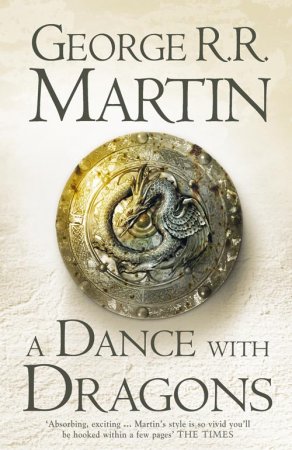 A Dance with Dragons
A Dance with Dragons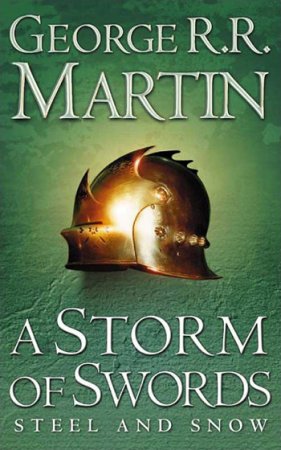 A Storm of Swords
A Storm of Swords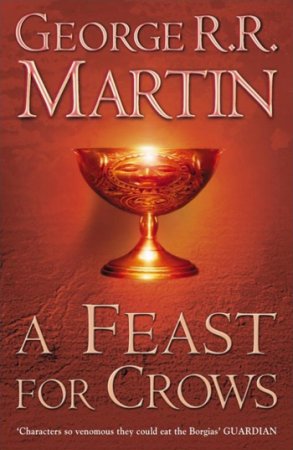 A Feast for Crows
A Feast for Crows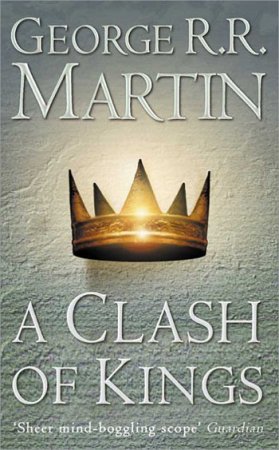 A Clash of Kings
A Clash of Kings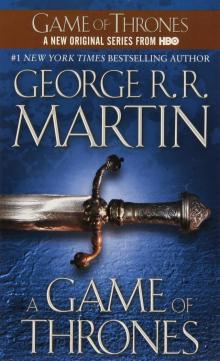 A Game of Thrones
A Game of Thrones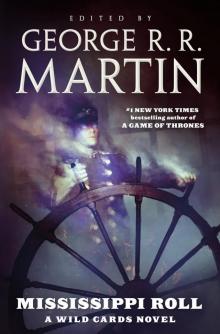 Mississippi Roll
Mississippi Roll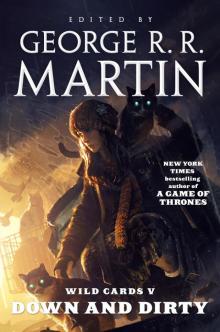 Wild Cards V: Down and Dirty
Wild Cards V: Down and Dirty Busted Flush
Busted Flush When the Devil Drives
When the Devil Drives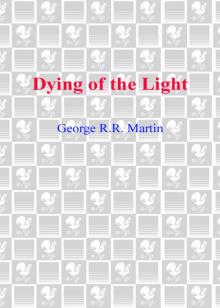 Dying of the Light
Dying of the Light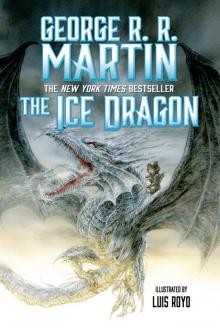 The Ice Dragon
The Ice Dragon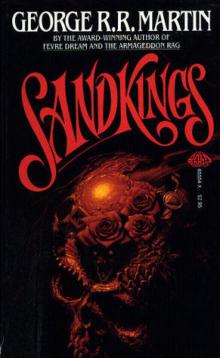 Sandkings
Sandkings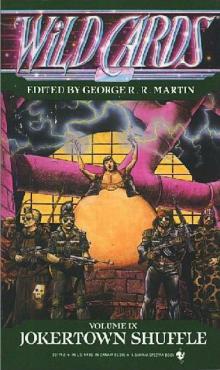 Jokertown Shuffle
Jokertown Shuffle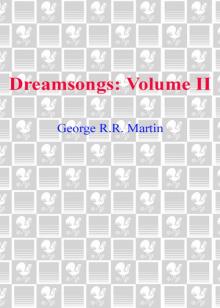 Dreamsongs. Volume II
Dreamsongs. Volume II Deuces Down
Deuces Down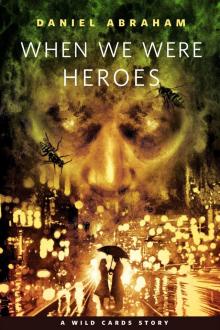 When We Were Heroes
When We Were Heroes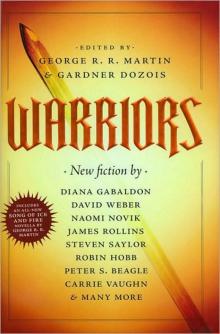 Warriors
Warriors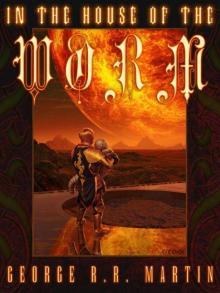 In the House of the Worm
In the House of the Worm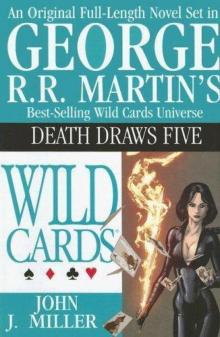 Death Draws Five
Death Draws Five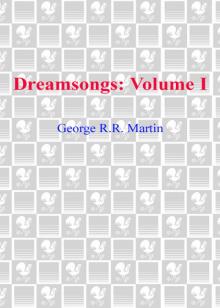 Dreamsongs. Volume I
Dreamsongs. Volume I Marked Cards
Marked Cards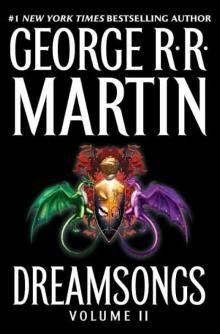 Dreamsongs
Dreamsongs Card Sharks
Card Sharks Dangerous Women
Dangerous Women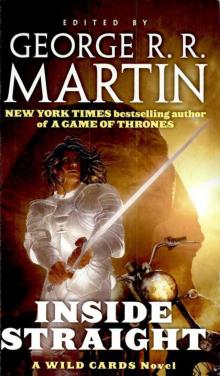 Inside Straight
Inside Straight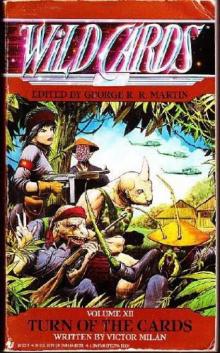 Turn of the Cards
Turn of the Cards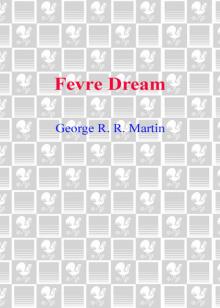 Fevre Dream
Fevre Dream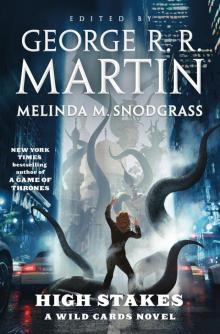 High Stakes: A Wild Cards Novel
High Stakes: A Wild Cards Novel Windhaven
Windhaven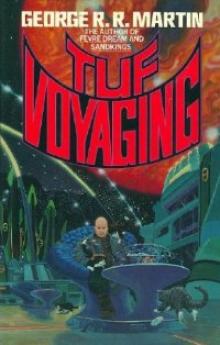 Tuf Voyaging
Tuf Voyaging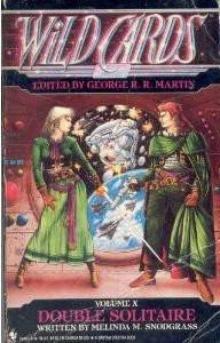 Double Solitaire
Double Solitaire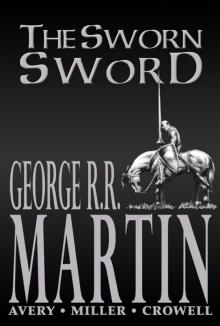 The Sworn Sword
The Sworn Sword Low Chicago
Low Chicago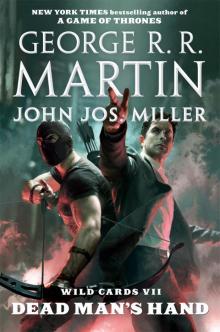 Dead Man's Hand
Dead Man's Hand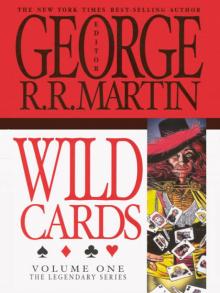 Wild Cards
Wild Cards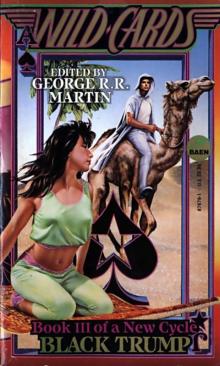 Black Trump
Black Trump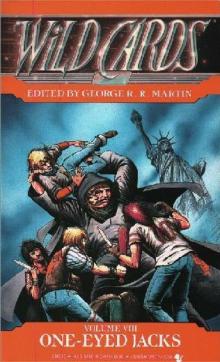 One Eyed Jacks
One Eyed Jacks Wild Cards: Aces Abroad
Wild Cards: Aces Abroad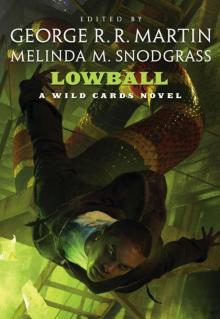 Lowball: A Wild Cards Novel
Lowball: A Wild Cards Novel Double Solitaire (2019 Edition)
Double Solitaire (2019 Edition) Dealer's Choice
Dealer's Choice Ace in the Hole
Ace in the Hole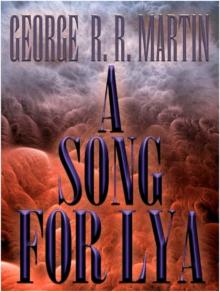 A Song for Lya: And Other Stories
A Song for Lya: And Other Stories Three Kings
Three Kings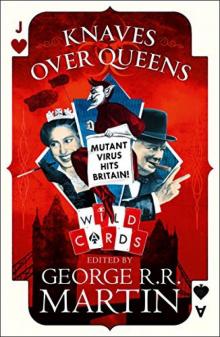 Knaves Over Queens
Knaves Over Queens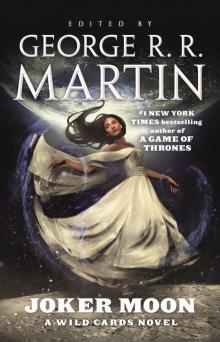 Joker Moon
Joker Moon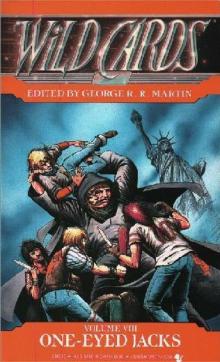 One Eyed Jacks wc-8
One Eyed Jacks wc-8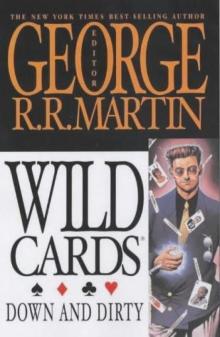 Down And Dirty wc-5
Down And Dirty wc-5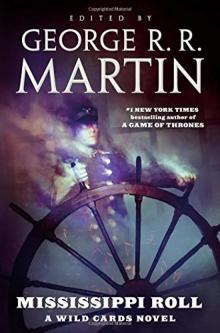 Mississippi Roll_A Wild Cards Novel
Mississippi Roll_A Wild Cards Novel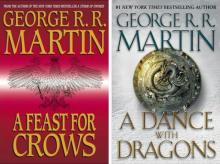 A Feast for Dragons
A Feast for Dragons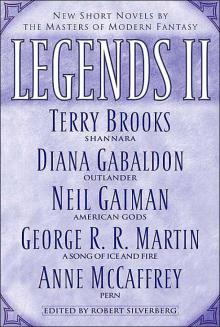 The Sworn Sword ttodae-2
The Sworn Sword ttodae-2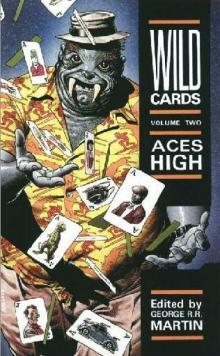 Aces High wc-2
Aces High wc-2 Wild Cards 13 : Card Sharks
Wild Cards 13 : Card Sharks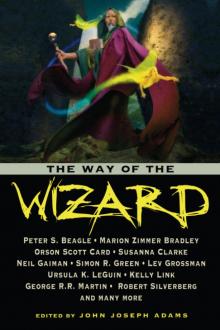 Way of the Wizard
Way of the Wizard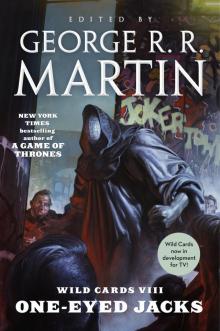 Wild Cards VIII: One-Eyed Jacks
Wild Cards VIII: One-Eyed Jacks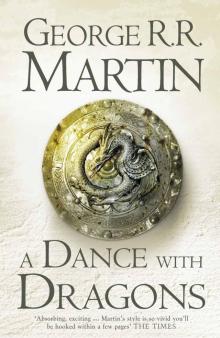 A Dance With Dragons: Book 5 of A Song of Ice and Fire (Song of Ice & Fire 5)
A Dance With Dragons: Book 5 of A Song of Ice and Fire (Song of Ice & Fire 5)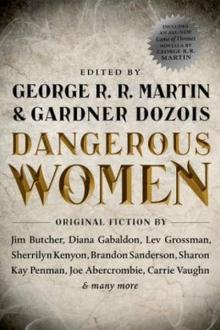 The Princess and The Queen, Or, The Blacks and The Greens (a song of ice and fire)
The Princess and The Queen, Or, The Blacks and The Greens (a song of ice and fire)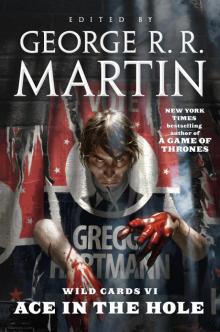 Wild Cards VI--Ace in the Hole
Wild Cards VI--Ace in the Hole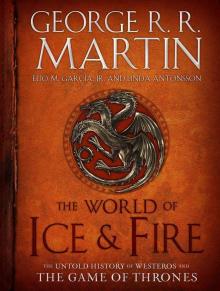 The World of Ice & Fire: The Untold History of Westeros and the Game of Thrones (A Song of Ice and Fire)
The World of Ice & Fire: The Untold History of Westeros and the Game of Thrones (A Song of Ice and Fire)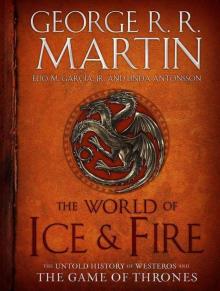 The World of Ice & Fire: The Untold History of Westeros and the Game of Thrones
The World of Ice & Fire: The Untold History of Westeros and the Game of Thrones Busted Flush wc-19
Busted Flush wc-19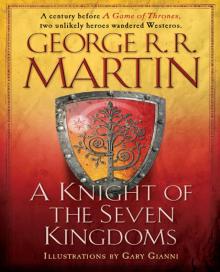 A Knight of the Seven Kingdoms
A Knight of the Seven Kingdoms Nightflyers: The Illustrated Edition
Nightflyers: The Illustrated Edition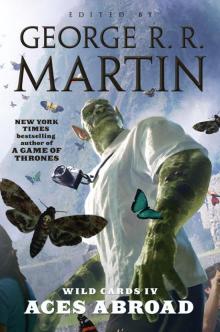 Wild Cards IV
Wild Cards IV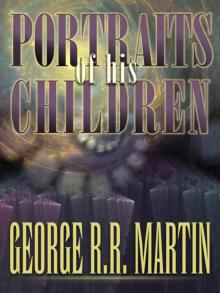 Portraits of His Children
Portraits of His Children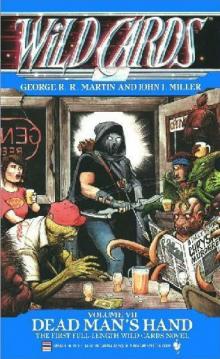 Dead Mans Hand wc-7
Dead Mans Hand wc-7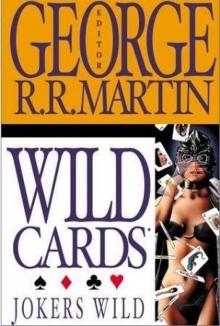 Jokers Wild wc-3
Jokers Wild wc-3 The Lonely Songs of Laren Dorr
The Lonely Songs of Laren Dorr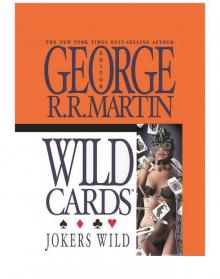 Wild Cards III: Jokers Wild
Wild Cards III: Jokers Wild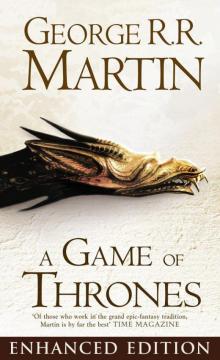 A Game of Thrones Enhanced Edition
A Game of Thrones Enhanced Edition Nightflyers & Other Stories
Nightflyers & Other Stories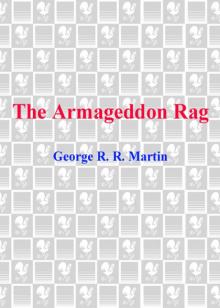 Armageddon Rag
Armageddon Rag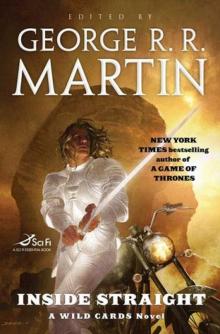 Wild Cards: Inside Straight
Wild Cards: Inside Straight A Song for Lya
A Song for Lya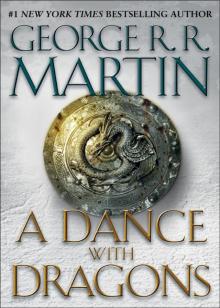 A Dance with Dragons: A Song of Ice and Fire: Book Five
A Dance with Dragons: A Song of Ice and Fire: Book Five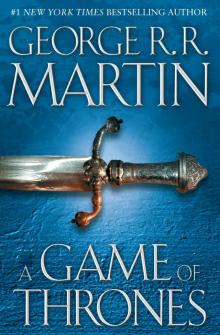 Song of Fire & Ice 01 - A Game of Thrones
Song of Fire & Ice 01 - A Game of Thrones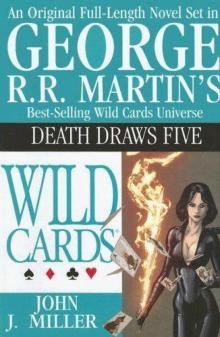 Death Draws Five wc-17
Death Draws Five wc-17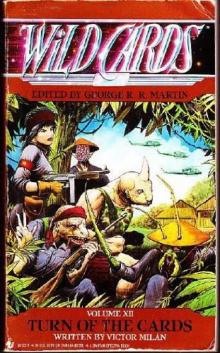 Turn of the Cards w-12
Turn of the Cards w-12 Wild Cards 14 - Marked Cards
Wild Cards 14 - Marked Cards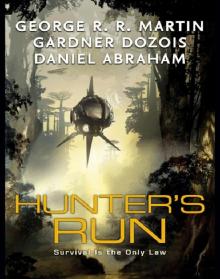 Hunter's Run
Hunter's Run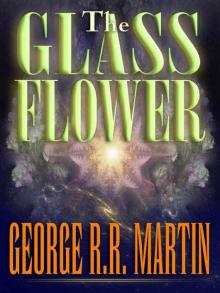 The Glass Flower
The Glass Flower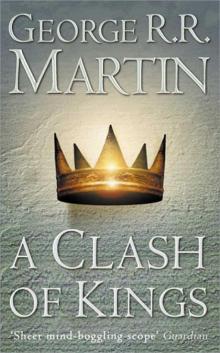 A Clash of Kings asoiaf-2
A Clash of Kings asoiaf-2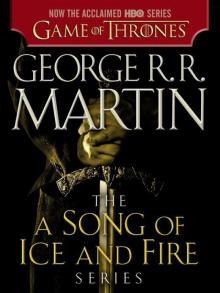 A Game of Thrones 5-Book Bundle: A Song of Ice and Fire Series: A Game of Thrones, A Clash of Kings, A Storm of Swords, A Feast for Crows, and A Dance with Dragons (Song of Ice & Fire)
A Game of Thrones 5-Book Bundle: A Song of Ice and Fire Series: A Game of Thrones, A Clash of Kings, A Storm of Swords, A Feast for Crows, and A Dance with Dragons (Song of Ice & Fire)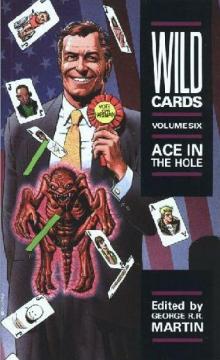 Ace In The Hole wc-6
Ace In The Hole wc-6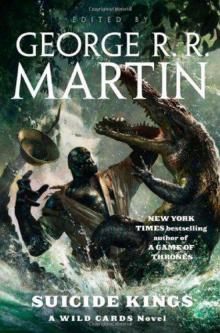 Suicide Kings wc-20
Suicide Kings wc-20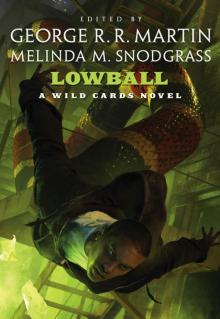 Lowball
Lowball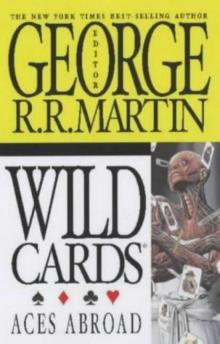 Aces Abroad wc-4
Aces Abroad wc-4 George R. R. Martin's a Game of Thrones 4-Book Bundle
George R. R. Martin's a Game of Thrones 4-Book Bundle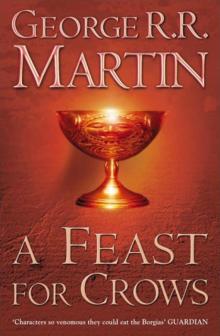 A Feast for Crows asoiaf-4
A Feast for Crows asoiaf-4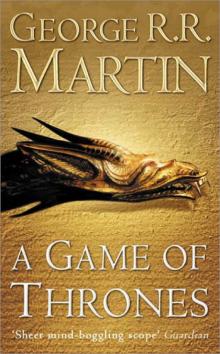 A Game of Thrones asoiaf-1
A Game of Thrones asoiaf-1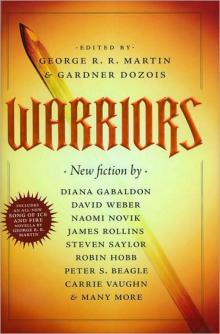 The Mystery Knight ttodae-3
The Mystery Knight ttodae-3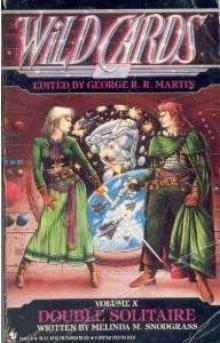 Double Solitaire w-10
Double Solitaire w-10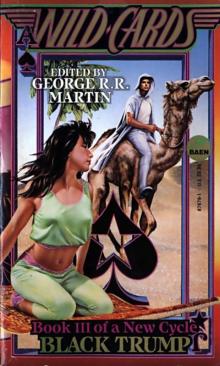 Wild Cards 15 - Black Trump
Wild Cards 15 - Black Trump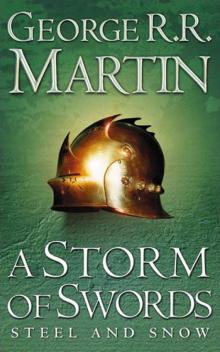 A Storm of Swords asoiaf-3
A Storm of Swords asoiaf-3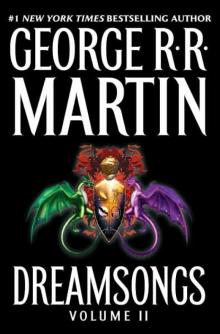 The Hedge Knight ttodae-1
The Hedge Knight ttodae-1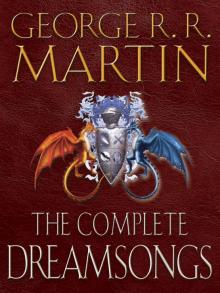 Dreamsongs 2-Book Bundle
Dreamsongs 2-Book Bundle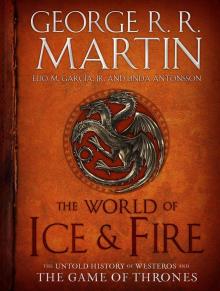 The World of Ice & Fire
The World of Ice & Fire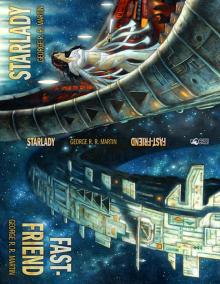 Starlady & Fast-Friend
Starlady & Fast-Friend Old Mars
Old Mars Fantasy For Good: A Charitable Anthology
Fantasy For Good: A Charitable Anthology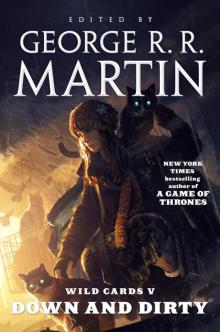 Wild Cards V
Wild Cards V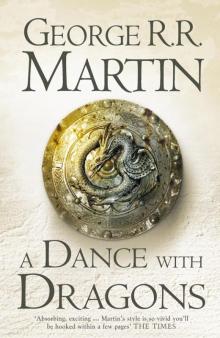 A Dance with Dragons asoiaf-5
A Dance with Dragons asoiaf-5 Dealer's Choice w-11
Dealer's Choice w-11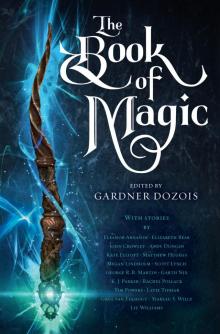 The Book of Magic
The Book of Magic A Game of Thrones 4-Book Bundle
A Game of Thrones 4-Book Bundle Texas Hold 'Em
Texas Hold 'Em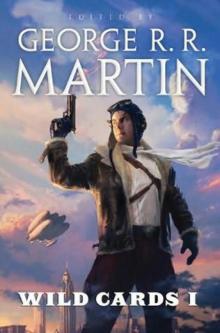 Wildcards wc-1
Wildcards wc-1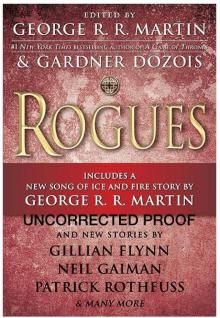 Rogues
Rogues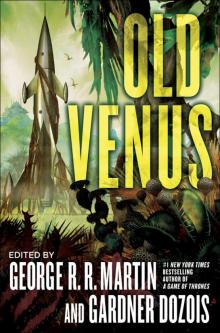 Old Venus
Old Venus